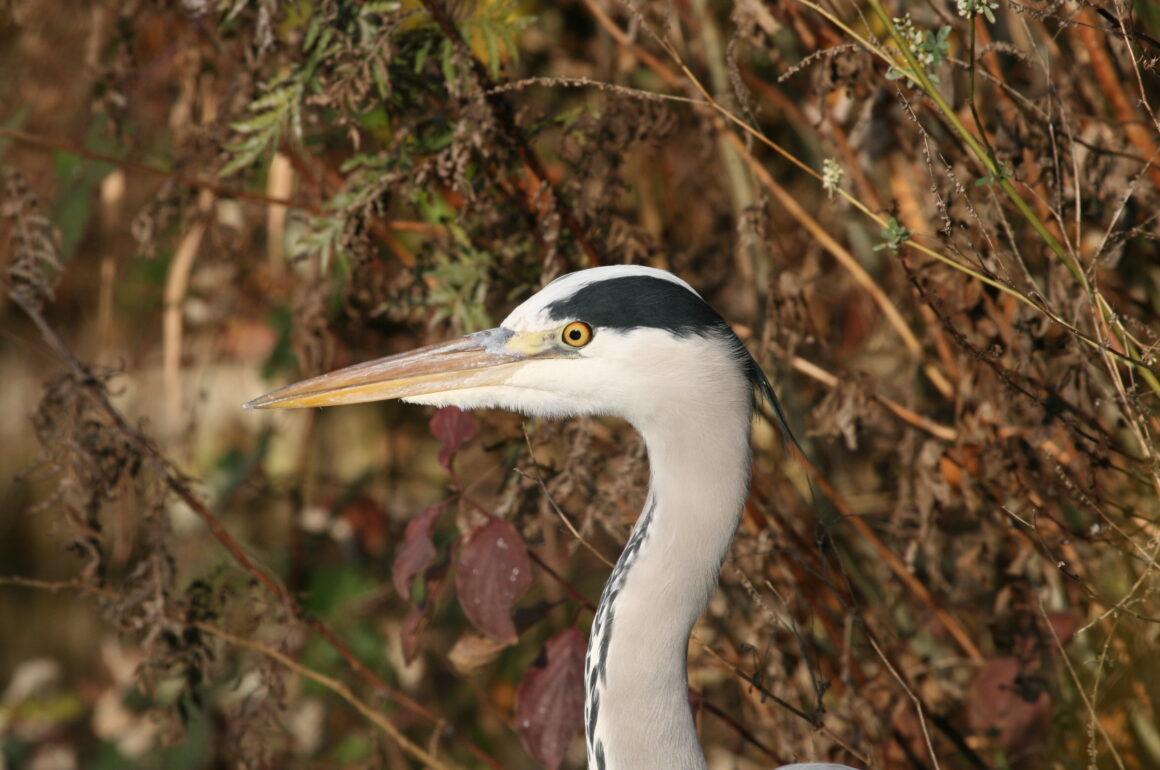
Well folks, it’s been a while.
And whether the return is a permanent one or not remains to be seen as those factors sealing my fate as a regular contributor are still binding me to this day. Nevertheless, I felt it was time for a new post. Having come back to the blog in whatever form and persistency, the overarching subject of language in birding seemed to be a suitable and deserving theme since bird names were part of my original beat.
Now, the names different languages give to birds are peculiar indeed, but that is a subject very specific to those who seek out and identify birds. You see, Taylor Swift is unlikely to be a birder and even more unlikely to ever write a song about the disadvantage of naming the Pied Wheatear “Schwarzrückensteinschmätzer”. So what about the general public? How have birds infiltrated our everyday language, even of non-birders?
Well, I did a quick search of my native language, which is German, and was surprised by both the quantity and the quality. Now, there are a few obvious uses of bird names that I really needn’t cover, like our ambivalence towards the house sparrow. Its nickname “Spatz” is one of our most common terms of endearment, yet “Dreckspatz” translates to dirt sparrow and describes a person with questionable body hygiene. A woman perceived as stupid is dismissively called a “goose” or maybe a “snipe” when she’s annoying and acting entitled. Come to think of it, many bird names are used when describing women, yet do not pertain to men. But don’t fear, we are not being kinder to men – we just straight-out call them idiots, jerks or even worse. No birds required.
Below are a few of the more intricate and surprising ways birds feature in German every-day language, in no particular order. I’d love to hear of a few fine examples from your language in the comments.
“Weiss der Geier” – the vulture may know & “Hol’s der Geier” – may the vulture take it
Ever contemplated the truly existential questions of life – like where you left your car keys – and failed miserably? Then the spontaneous exclamation “the vulture may know where I left my keys“ would clearly indicate a German origin. Or have you ever tried to accomplish something and again, you failed and gave up? Well, then may the vulture take it. In the latter case, there’s no linguistic alternative to the vulture while in the first case, depending on your level of frustration, alternatives range (in the order of mild anger to disgust) from fox to cuckoo and hangman.
Oh, cheeky me left out another alternative for both cases, which brings us right to the origin of these sayings: the devil. Yes, Germans were a particularly supersticious breed in the days of old, and would not dare to use the word devil even when cursing. So, they cleverly would hijack unpopular animals or people as placeholders for the devil and then swear to their heart’s delight. Since apparently neither foxes, nor vultures, cuckoos or hangmen were held in particularly high esteem back then, we are left with some peculiar possibilities to express our frustration to this day.
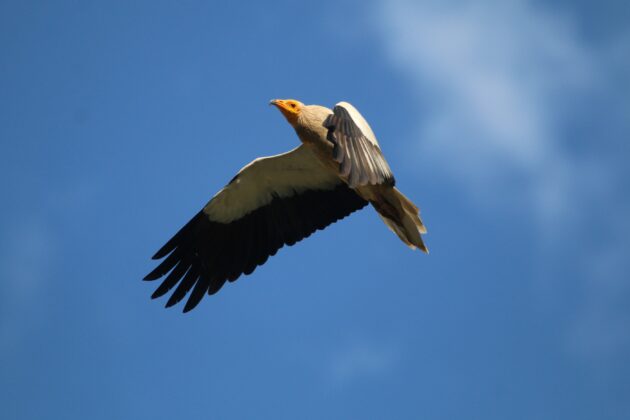
Egyptian vulture clearly knowing where I left my smartphone
“Lahme Ente” – lame duck
Any slow person may be called a “lame duck“ in German, but today it is most commonly used in traffic to describe an annoyingly slow car. The origin of this expression clearly lies in the slow, dopey waddling gait of a duck on land. However, the reason for “lame duck“ being mostly directed at cars nowadays likely pertains to the Citroen 2CV. This model was very popular in Germany in the 1970s and 1980s and it was commonly called “Ente“ (duck) due to its round hood. Needless to say, the motorization of the “Ente“ could have been more powerful and the entire model thus ended up exemplifying slow progress on the road.
The specific English term “lame duck“ describing a politician who is on their way out is not in common use in German. In recent years, people began using it more and more in political conversations, but then they‘d mostly choose the direct English expression “lame duck“ to clearly distinguish between a politician and a car.
“Rabeneltern” – raven parents
Raven parents, raven mothers, raven fathers – shame on you all, for you are neglecting your children.
Being referred to as a raven parent is grim, because this is a rather strong insult paired with a damning judgement of your parental qualities. It may be used tongue-in-cheek amongst spouses but then needs to be visibly paired with a wink and a smile to avoid conversing exclusively through divorce lawyers from then on.
But why are ravens thought of as negligent parents? Well, in comparison to many other birds, young ravens leave the nest earlier and are thus more clumsy and helpless when they are found on the ground or on low branches, all by themselves. The fact that the young birds are still cared for by their parents apparently escaped those intrepit early observers, leaving us with a straight-forward possibility to verbally dismiss anyone with whose parenting we disagree.
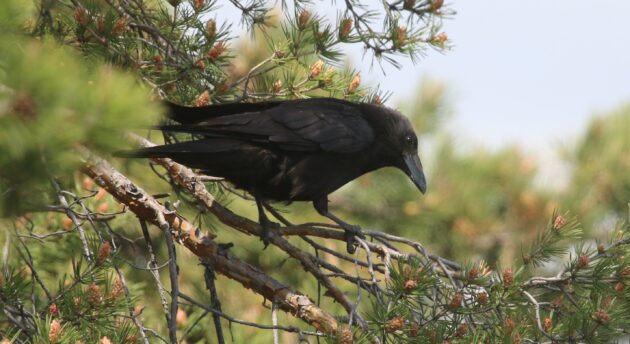
Common Raven not caring about the welfare of its offspring
“Reihern” – to heron
If someone is heroning, they are not having a good time at all, as “to heron“ describes the process of vomiting violently. It’s a slang term however and as such is mostly used in private settings and among youths.
So far as the origin is concerned … ever saw a heron feed its chicks in the nest? Exactly.
“Kauzig” – to be owly
This term describes someone who shows the peculiar behaviour associated with a solitary person or a recluse and – no surprise there – is most often associated with old people. Now, the origin clearly pertains to the mostly solitary, reclusive behaviour of our beloved nocturnal friends and their angry faces when spotted during the day.
I’d like to point out though that “owly“ is a poor translation. You see, in German we have three distinct words for different groups of owls. The eagle-owls of the genus Bubo are all called “Uhu“. And then we have the terms “Eule“ and “Kauz“, but the assigning of the various species into these two categories is not consistend and lacks taxonomic base and reason. As a rule of thumb, with quite a number of exceptions, if the species sports feathery ears and is not an eagle-owls, it’s an “Eule“. If however it has a nice round head, chances are it‘s a “Kauz“. So you see, “kauzig“ pertains not to people reminiscent of such sassy species as the long-eared owl but rather to grumpy ol‘ codgers like the Barred Owl or the Tawny Owl.
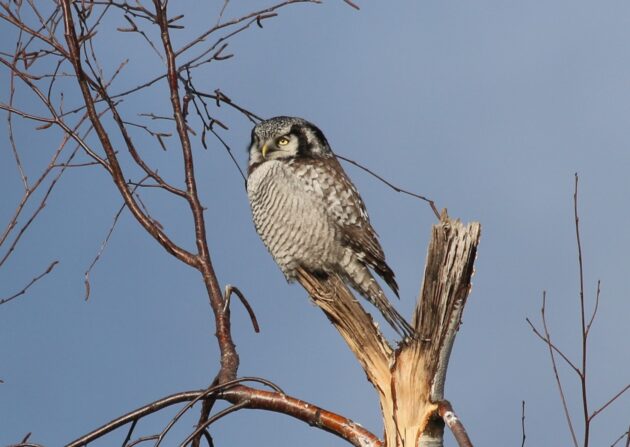
Hawk Owl mastering the art of hiding its fluffy feathery ears – since we call it SperberEULE, the sparrowhawk owl
“Erdrosseln” – thrushing
To thrush is a verb people use to describe the process of strangling someone to death. Yupp, you read that correctly. Thushing means strangulation until death do us part.
When researching the origin of this saying, I figured it pertained to snares that were used to catch thrushes until better times prevailed. But no, there is another reason for this surprisingly creative way of describing the gruesome killing of a creature: the characteristics of hunting in Germany.
Hunting in Germany is a very traditional pursuit and thus has a very specific and complex code of conduct. This goes so far as to hunters even using a very unique hunter’s jargon for the various activities related to hunting, or the names of the different parts of animals they hunt. If you haven’t learned their specific vocabulary, you wouldn’t even understand what the heck two hunters are talking about. Here are some examples of hunters “borrowing” common German words and giving them a new, very specific meaning:
A hare’s tail is called a Blume by hunters, which means flower. To anyone else, a Blume is a flower and a tail is a tail. An animal’s blood is referred to as Schweiss, which means sweat. So the blood hound is called the sweat hound here. Reproduction period is the Setzzeit (sitting time). And lo and behold, the throat of an animal – no matter the species – is called the Drossel, the thrush. So when you go for someone’s throat, you go for their thrush in ordert o thrush them to death. For real.
“Du hast einen Vogel!” – You have a bird!
This is certainly more cheerful than thrushing someone, yet is even more absurd. If you have a bird, you are crazy, unhinged, insane. Or unreasonable to the point of lunacy. “Darling, mind getting me a beer from the fridge?“ “I think you have a bird!“
This surprising use of a bird in our language can be traced back to the – former, I assure you – popular belief that the heads of mentally challenged people were in fact inhabited by birds. Seriously. I am not making this up. If people back then met such a person, they surmised that the reason for their state of mind was that a bird had occupied their skull. This explains why alternatively, such people would be referred to as having a tit (straight face), a member of the Paridae. You know, cavity breeders. How those people thought these birds would enter and exit their skull is beyond me and clearly indicates that those scientists of old all had a bird.
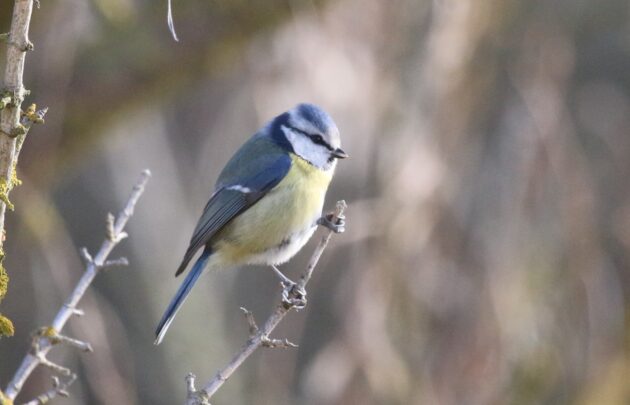
Blue Tit looking suspiciously like it has seen the world through human eyes
“Vögeln” – birding
This is an important public announcement for any birders planning a visit to Germany and wanting to learn a few German words beforehand to facilitate casual conversations. When you and your companion go birding, do not, under any circumstances, say you go “vögeln”. Turning the word “bird“ (Vogel) into a verb may describe the process of birdwatching in English, yet the German meaning of such a verb is entirely different: you don’t go watching birds, you’re having intercourse of an intimate nature. Yupp. Slang word, but a positive one.
Well, the origin of that description is straight forward. Imagine you are a conservative parent going for a walk in the park with your child sometime in the 19th century, and your child spots two birds in the process of making more birds. The child will have questions. And the parent will need answers. Answers that will silence the child, yet don’t condem their souls to eternal fire. So, what are those two birds doing? Oh, the birds are just birding, my dear. Nothing to see here, let’s move on.
And this German use of the noun “Vogel“ (bird) as a verb is the reason why capital letters are so important in German. All nouns are written with a capital letter, and verbs without one. All of them, always, respectively. And if you are nice to birds, you’d say “Ich bin gut zu Vögeln“. Yet, “Ich bin gut zu vögeln“ means you are good to … never mind.













The last paragraph is essentially “Eats, shoots, and leaves” in a German version – which obviously is naughtier than the English one.
This is good and reminded me of something I posted a while back:
https://www.10000birds.com/birder-defined.htm
I’ll mention an example from Spanish, because it is pretty much the opposite of one of yours. In Mexico, they talk of “mamás cuervos”. Linguistically, this would translate as a mother crow, but in central Mexico, we have no crows, so it means a raven mother. It refers to a mother who thinks her child is beautiful even though everyone else considers it ugly. Or, by extension, one who thinks highly of her child, though he is undeserving of such esteem.
It seems there is no general agreement on which bird species are good parents and which are not …
@Kai: careful, or 10,000 Birds will be hit with a “parental guidance” classification!
@Jason: How the vulture did I miss that post of yours? Excellent read, thanks for mentioning it.
@Paul: That is so interesting! So ravens are great mothers, yet have ugly kids and aren’t overly bright or honest with themselves. Ravens do get a bad rap.
@Kai: Since humans can’t even agree amongst themselves who is a good parent or not (hence the expression “raven parents”), a consensus regarding birds is certainly asking too much from us!
Jochen, I thought 10,000 Birds already had that Parental Advisory as a consequence of my frequent and usually very bad Japanese Tits jokes …
Well, those jokes are incredibly flat anyway, Kai…
When talking about owls I’ve heard this expression quite often: ein komischer Kauz.
A very good point and a nice addition to Jochen’s post!
@Sybille: Yes, “komischer Kauz” or “alter Kauz” (strange / old owl) are also frequently used, good point. By the way, this is something we would not say to a woman – probably as it is “der Kauz”, and thus masculine – so the owl almost balances the gose and snipe.